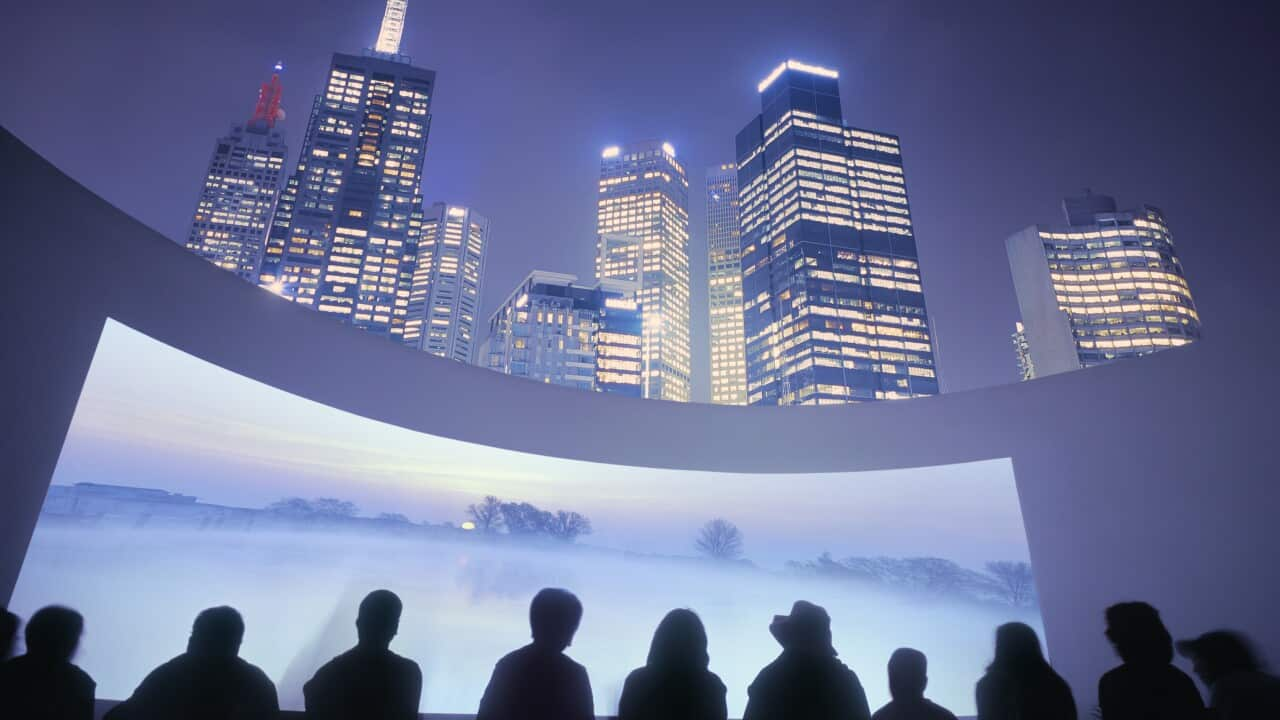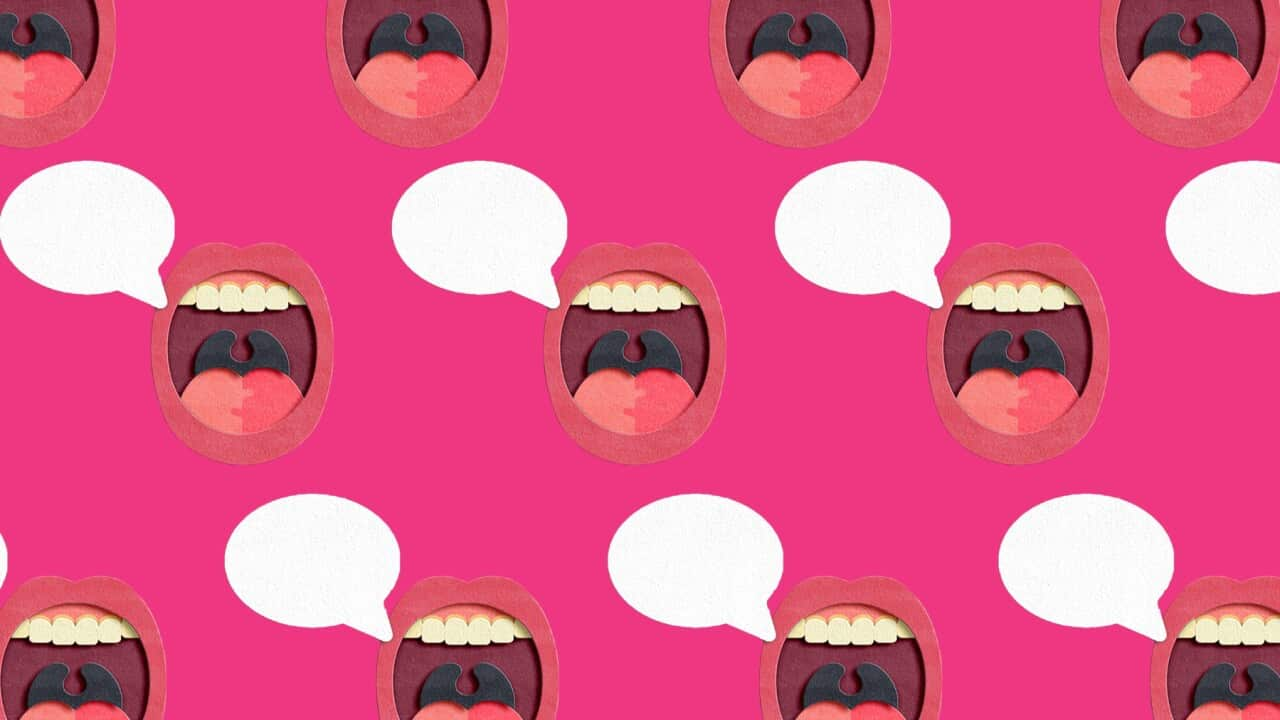This lesson suits upper-intermediate to advanced learners. After listening, scroll down and test your knowledge with our quiz.
Learning notes
Language objective
How to talk about movies and going to the cinema
Phrases to use when talking about going to the cinema:
- Do you want to catch a flick tonight?
- Have you seen that new release everyone is talking about?
- Everyone’s been waiting for the premiere. It is the most hotly anticipated event this year.
- There’s a lot of buzz about it.
- A couple of new releases have hit the cinema.
- I’m in, but unfortunately, I can’t make it tonight. Do you know how long it’s running for?
Phrases to use when talking about movies:
- The movie was:
- outstanding - means excellent
- really absorbing- means really interesting
- dreary – means boring
- a big box office hit – means it made a lot of money
- second rate and predictable – means not very good and it was easy to guess the story line - The cast was stellar
- The star really carried the movie
- The opening scene was intriguing
- The trailer was riveting – means very exciting
- That movie was unbelievably good.
- It was outstanding.
- It has a stellar cast.
- The main actor really carried the movie.
- I didn’t like it; it was dreary.
- The opening scene was so intriguing.
- I loved the cast.
- This movie is a big box office hit.
- Some movies are second-rate and predictable.
- I wasn't fan of this movie.
Vocabulary:
A release – a film or other product that is made available to the public.
A general release - a new movie that is made widely available to the public.
A premiere - the first time a film, show or TV series is shown or performed in front of an audience.
The cast –the actors in a movie, TV series, or theatre play
Iconic – very famous and popular.
Opening scene – the first part of the film.
Movie trailer - 2-3 minutes of a movie used to advertise it to the public.
Colloquial expressions:
Let’s catch a flick is an informal way to invite someone to go the cinema or to watch a movie.
A movie hits the cinema when it is released and become available to the public.
We can say there is a lot of buzz about something when there is a lot of excitement and conversation about it.
You can say I'm in or count me in when you want to be included in an activity that someone is suggesting.
Transcript:
(Note: This is not a word-for-word transcript)
SBS acknowledges the Traditional Custodians of Country and their connections and continuous care for the skies, lands, and waterways throughout Australia.
Hi, my name is Josipa, and one of my favourite things to do during warm summer nights is to catch a flick under the stars.
To catch a flick means to go to the cinema to watch a movie. To be completely honest, I only found out about this phrase recently when Allan asked me,
Do you want to catch a flick tonight?
You could also say, “Do you want to catch a movie?” or if you prefer going to the theatre or a concert, you could ask your friends to catch a play or show with you.
And after catching a movie at the cinema, you could catch a train, bus or taxi to get home! English is rather strange, isn’t it?
By the way, did you know that the word ‘cinema’ comes from the ancient Greek, kinema, meaning movement?
The word 'cinema' is actually a shortened version of the French word cinematograph, which combines the Greek word kinema with another Greek word, graphien, which means to write or record. So, when we talk about cinema, we are describing the recording of movement.
Our friends, Allan and Claire, shared this knowledge with me. You know, they are real movie buffs, that is, they know a lot about films, and they go to the cinema every week. Let’s hear what phrases they have for us today.
Claire
Hey, have you seen that new release that everyone is talking about?
Allan
The one with Cate Blanchett?
Claire
Yes, everyone’s been waiting for the premiere. It's is the most hotly anticipated event this year.
Allan
No, I haven’t seen it yet, but I’ve noticed a lot of buzz about it.
Claire
A couple of other releases have hit the cinema too, but I’m keen on seeing Cate’s first. She always carries the film, and the rest of the cast is stellar.
Allan
I’m in, but unfortunately, I can’t do it tonight. Do you know how long it is running for?
Josipa
Ok, plenty of useful phrases; let’s start with Claire. She asked Allan if he had seen a movie that everyone was talking about by saying,
Have you seen that new release that everyone is talking about?
A new release is a film, that is just being made available to the public.
Do you remember what Claire said about the premiere of a movie she wants to see?
The premiere is when a film, show, TV series or similar is shown or performed for the first time in front of an audience.
Anyway, Claire said,
Everyone’s been waiting for the premiere. It is the most hotly anticipated event this year.
Everyone was waiting for it because they expect that it will be very good.
And if an event, especially a cultural event, is hotly or highly anticipated, people look forward to it because they believe it will be exciting and interesting.
We heard Allan saying that he hasn’t seen this movie, but that is has heard about it.
He used an interesting phrase that we can use in everyday situations. He said,
There’s a lot of buzz about it.
Buzz can mean many different things. For example, it's the sound bees make. Also, it can stand for a rumour, gossip, or if you tell someone, "I'll give you a buzz, " you mean that you'll give them a telephone call.
But if you say there's a lot of buzz about something, it means that there's a lot of excitement and conversation about it. People are very keen to see it.
Claire aslo said,
A couple of other releases have hit the cinema too.Claire
If a motion picture, which is another way of saying a movie, hits the cinema, it means that it has been released. It has become available to the public.
From our dialogue, it is very clear that Claire is a big fan of Cate Blanchett, an iconic Australian actor, and by iconic, I mean very famous and popular. Claire said,
She always carries the film, and the rest of the cast is stellar.
When we say an actor carries the film, it means that we think that their acting makes the movie good, even if the other actors aren’t so good, but in this case, Claire said that the rest of the cast is stellar too.
The cast of a movie, play or TV show is all the actors in it. And when the cast is stellar, all actors are stars. They are famous and popular – and usually good!
You could also say that someone's performance was stellar. We say this when we think that they have done very good work.
Allan said,
I’m in, but unfortunately, I can’t make it tonight.Allan
The expressions "I'm in" or sometimes we say "count me in" mean that you want to be included in an activity that someone has suggested.
Therefore, Allan said that he wanted to see the movie with Claire, but he couldn't do it tonight.
Do you know how long it is running for?Allan
Allan asked how long the film was running for, that is, how long the movie will be available in the cinema.
How often do you go to the cinema, and what was the last movie you saw? Did you like it or not? What was good or bad about it?
For our next dialogue, Allan and Claire are just coming out of the cinema. Let's see if they liked the movie they saw.
Allan
Wow! That movie was unbelievably good!
Claire
The opening scene was intriguing, and I loved the cast. I think this movie is going to be a big box office hit.
Allan described the movie as unbelievably good, meaning it was impressive and extremely good. You could also say that movie was gripping or,
That movie was outstanding.Allan
Claire then mentioned things she liked about the movie; let’s hear her again.
The opening scene was intriguing, and I loved the cast.
The opening scene is the first part of the film, which Claire finds intriguing, another way of saying so interesting that it made her very keen to keep watching and find out more.
I think this movie is going to be a big box office hit.Claire
A box office hit is a movie that is financially very successful because a large number of people buy tickets to watch it.
Now, I’m really happy that Allan and Claire enjoyed the movie, but I wonder what phrases they would use if they didn’t like it.
Allan
Hey Josipa, you don't have to wonder. Claire and I saw plenty of dreary movies. They were really boring and not at all interesting.
Claire
Oh yeah, there are quite a few movies out there that are second-rate and predictable. Definitely not the best, and with plots that are just too easy to guess.
Allan
And I’m not a fan when they make a really riveting trailer for a movie that is really slow. For me, that's a letdown and a waste of time.
Josipa
Thanks, guys, and Allan, now that you mentioned a letdown and a waste of time, you have reminded me that we have a whole episode on phrases we can use to talk about disappointment.
Now, it’s time to introduce our guest, but before I do that, I just want to quickly go over some other words you mentioned.
Claire, you said that some movies were second-rate and predictable. What do you mean by that?
Claire
A second-rate movie is a movie that is not exciting and of very low quality. If a film is predictable, it is pretty clear what is going to happen next. There are no surprises.
Josipa
And Allan, what was it you said about the trailer?
I am not a fan when they make a riveting trailer for a slow-paced movie.Allan
A movie trailer is 2-3 minutes a short promotional film composed of clips showing highlights of a movie.
And if a trailer is riveting, it is very exciting; it keeps you watching, or, as we say, glued to the screen, while in a slow movie the main action develops very slowly.
And if you are not a fan of something, it means you don’t like it. You can use this phrase when talking about anything, not just movies. But let’s say you just saw a movie you didn’t like; you could say,
I wasn’t a fan of this movie.Claire
Our guest today is an Asian Australian actor Eric So , who gave a stellar performance in our video series .
If you haven't seen it yet, I encourage you to check it out on our website. It's funny and will help you improve your English language skills.
Eric, would you agree?
Eric
Absolutely. I had a great time working on it, and the series is absorbing, with plenty of useful tips for migrants trying to settle in Australia.
Josipa
Eric, I'm curious about your opportunities to work as an Asian Australian actor. It seems to me that we can see more diversity on TV and in the cinema in recent years.
Eric
Oh, it's much better than it used to be, but there is still more work we need to do as a society to be more inclusive. But you are right; writers, directors and actors from diverse backgrounds are getting more and more opportunities to tell their stories.
For example, at the 2023 Berlin International Film Festival, one of the world's most hotly anticipated film festivals, there will be seven new Australian works.
Josipa
That’s a big number! What kind of stories are we sending overseas?
Eric
For example, there’s a movie called Limbo by an Indigenous Australian filmmaker Ivan Sen or a series, Bad Behaviour, directed by Corrie Chen, which features young Asian Australian actress Yerin Ha.
Rolf de Heer's The Survival of Kindness will also have an international premiere in Berlin, and it has a multicultural cast. So yes, increasingly Australian entertainment industry is becoming more inclusive.
Josipa
That's great to hear. Thank you for your time today Eric; much appreciated.
Eric
Thank you for inviting me. It was my pleasure.
A big thank you to our educational consultant Professor Lynda Yates, our guests Eric So and Dorota Banasiak, and Paul Nicholson and Lily O'Sullivan who voiced the characters of Allan and Claire. We are also very grateful to our audio engineer Lia Crowley .






